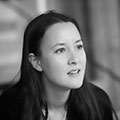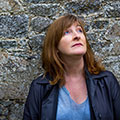
Manchester Writing Competition 2016
Winners and Short List
Manchester Writing Competition 2016
The winners of the Manchester Writing Competition 2016 have been announced, with poets Dante Di Stefano and Rebecca Tamás sharing the £10,000 Manchester Poetry Prize, and D. W. Wilson winning the £10,000 Manchester Fiction Prize.
Read more about the winners on Latest News.
Competition Judges 2016
Nicholas Royle says that the Fiction Prize judges, “read stories about abusive uncles and misogynist magicians; stories of regret, revenge and retribution; narratives set in ancient times and missives from the far future. We read touching tales about dementia and heartbreaking accounts of the deaths of children. We read a story narrated by an onion and another by the axe used to execute Thomas Cromwell. For some bizarre reason known only to a surprisingly large number of the 1,500 or so entrants, we read a disproportionately large number of stories about seagulls. Well, all right, not exactly about seagulls, but in which seagulls were to be seen or heard.”
Nicholas introduces each of this year’s stories in the running for the £10,000 prize:
- ‘The God Quetzalcoatl Has Retired and Now Runs a Pub in North Manchester’ by Michael Conley: “The Mesoamerican god of wind and learning wakes up on the pool table of the Three Arrows pub and decides to stay and run the place.”
- ‘Sixteen Feet’ by Erinna Mettler: “A dog-walker finds a fisherman’s boot washed up on the beach. There’s something inside it. Something off-white, hard and knobbly.”
- ‘The Dark Instruments’ by Laura Pocock: “A man goes to out to his garage in the middle of the night to check on his tools and knives and whatever’s under that tarpaulin.”
- ‘Succubus’ by Lucy Ribchester: “A mechanic is killed in a street fight. The following morning, the taste of tequila in her mouth, Rebecca wakes up in bed next to him.”
- ‘The First Hard Rain’ by Sophie Wellstood: “Rachael joins her ex-husband and his mother to scatter her former father-in-law’s ashes over the M6: ‘It was his favourite motorway.’”
- ‘All This Concrete Beneath Your Feet’ by D. W. Wilson: “A man and his young son drive down the Alaskan Highway. Motels, diners and Mounties. What are they running from and where will they end up?”
Adam O’Riordan reflects on the process of choosing the Poetry finalists and on each of the short-listed portfolios: “Judges Sarah Howe and Helen Mort worked tirelessly looking through almost two thousand entries. The beauty of the prize is that each entry is looked at by a judge (we don’t use sifters) which means when it came to forming the shortlist each judge had a link to poems we discussed. As ever this was a thrilling and a rigorous process in which we weighed the merits of each portfolio. As it should, in the end it came down to trying poems on our breath; the best defence of any poem was reading it aloud. The poems that made it to the shortlist seemed to live on the page and on the breath. There’s a pleasingly wide range of themes and experiences on show; the concerns of a globalised world in which sensibilities and experiences collide. But in each of the shortlisted portfolios is a sensitivity to the music and rhythm of the English language and also the potential of poetry so see life in new ways; to delight, to disturb to make the reader think and feel.
“Eric Berlin’s poems consider memory and nature in powerful and original ways. Dante Di Stefano offers poems which are both formally assured and darlingly inventive with a deep connection to literatures of the past. Sakinah Hofler offers intense, powerful and at times searingly raw poems reaching from Mecca to modern day America. Rebecca Tamás give us poems as monologued dream visions blurring internal and external experience to compelling effect. Ruth Tang’s poems are clever and precise. They look at the intricacies and complexities of language with impressive results. Eoghan Wall’s work has an impressive range, showing just how supple poetry can be from the biblical to the everyday.”
-
Poetry Prize Judges
Sarah Howe

Sarah Howe is a British poet, academic and editor. Born in Hong Kong to an English father and Chinese mother, she moved to England as a child. Her first book, Loop of Jade (Chatto & Windus, 2015), won the T.S. Eliot Prize and The Sunday Times / PFD Young Writer of the Year Award, and was shortlisted for the Forward Prize for Best First Collection. She has performed her work at festivals internationally and on BBC Radio 3 and 4. Having previously held fellowships at Cambridge University and Harvard’s Radcliffe Institute, she is currently a Leverhulme Fellow at University College London.
Photo credit: Hayley Madden.
Helen Mort

Helen Mort was born in Sheffield. Her first collection Division Street was shortlisted for the Costa Prize and the T.S. Eliot Prize and, in 2014, won the Fenton Aldeburgh Prize. Her second collection No Map Could Show Them (Chatto & Windus) is a Poetry Book Society Recommendation. She is a keen runner and the author of Lake District Trail Running (Vertebrate) and has edited The Owl and the Pussycat, a poetry anthology for children. She joins the Manchester Writing School at Manchester Met as Lecturer in Creative Writing in September 2016.
Adam O’Riordan

Adam O’Riordan is Senior Lecturer in Creative Writing at Manchester Met and has chaired the Manchester Poetry Prize panel since 2012. In 2008, he became the Wordsworth Trust Centre for British Romanticism’s youngest ever poet-in-residence and his first collection, In the Flesh, won a 2011 Somerset Maugham Award. His debut collection of short stories The Burning Ground will be published by Bloomsbury in the UK and W.W. Norton & Company in the USA in 2017 and his second collection of poems A Herring Famine will be published by Chatto in 2017.
-
Fiction Prize Judges
Janice Galloway

Janice Galloway is an internationally-acclaimed author of novels, short stories, poetry and non-fiction, collaborative works with sculptors, painters, musicians, typographers, photographers and videographers. She has won The American Academy of Arts and Letters EM Forster Award, Saltire Award, Creative Scotland Award and Scottish Book of the Year. She has been writer-in-residence to four Scottish prisons, Research Fellow to the British Library, resident at Jura Distillery, and was the first Fellow in Residence at the University of Otago in New Zealand. Her radio work includes two series for BBC (Life as a Man and Imagined Lives) and programmes on music and musicians.
Juliet Pickering

Juliet Pickering joined the Blake Friedmann literary agency in 2013 and her authors have been shortlisted for Costa, Commonwealth and Guardian First Book Awards, won the Whitbread and Green Carnation Prizes and, in 2015, the prestigious French literary award, Prix Femina Etranger. Her interests range from literary, book club and well-written commercial fiction to crime and psychological suspense. She represents many non-fiction writers across the board, including memoir, pop culture, social history, feminist and political commentary, cookery and food writing, humour, and all sorts in-between. She was also a judge for the Bristol Short Story Prize 2016.
Nicholas Royle

Nicholas Royle has chaired the judging panel for the Manchester Fiction Prize since 2009. He is Senior Lecturer in Creative Writing in the Manchester Writing School at Manchester Met and the author of seven novels, including The Director’s Cut, Antwerp and First Novel. He has written more than 100 short stories, some of which feature in his collection Mortality. He has edited 20 anthologies, including six volumes of Best British Short Stories, and runs Nightjar Press, which publishes new stories in chapbook format. He lives in Manchester.

